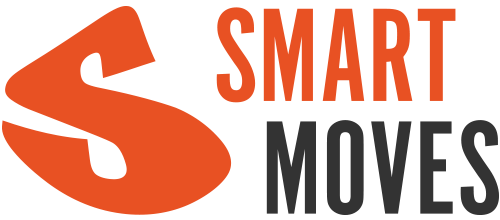Vegetarianism, as well as the use of vegetables are good ways to reduce the load on environment caused by the diet and to prevent many diseases that have become common in the Western population that could be prevented by lifestyle and eating habits. In addition to the health and environmental perspective, vegetarian diets, especially the vegan diet, often emphasize an ethical perspective in which the exploitation of animals in food production is seen as unacceptable. Vegans also avoid using animal-based materials in their other consumption habits.
The addition of vegetables to the diet can be accomplished in several different ways. If desired, you can replace all animal-based food sources with non-animal-based products. Indeed, a number of different vegetarian diets are known today, which differ according to the animal-based sources included in the diet.
The most common vegetarian diets are:
- In addition to plant-based products, the semi-vegetarian diet includes dairy products, poultry, fish, and egg. Unlike a normal mixed diet, the semi-vegetarian diet does not include red meat (beef, pork and mutton).
- In addition to plant-based products, the pescovegetarian diet includes dairy products, egg and fish.
- In addition to plant-based products, the lacto-ovo-vegetarian diet includes both dairy products and eggs.
- In addition to plant-based products, the lacto-vegetarian diet includes dairy products.
- The vegan diet contains only plant-based products.
Simple Tips for a Vegetarian
With increased product supply and awareness, nutrient deficiencies in those who follow a vegetarian diet are relatively rare, although there is always a risk of deficiency when limiting the diet. Inadequate or excessive intake of nutrients can also occur in mixed diets. Indeed, many of these deficiencies in mixed diets could be corrected by increasing the use of plant-based products.
1. Eat diversely
In all eating, it is smart to favor a wide variety of nutritious plant-based products in order to have a healthy and balanced diet. Such sources of plant-based products include:
- whole grain products
- berries
- fruits
- legumes
- nuts
- vegetables
- root vegetables
- vegetable oils.
2. Take supplements if needed
If you reduce the use of animal products, make sure you get the nutrients you need from supplemental sources. It is a good idea to pay more attention to this the less animal-based foods you are going to use. Those following a vegan diet should pay particular attention to adequate intake of the following nutrients:
- vitamin B12
- vitamin D
- calcium
- iron
- iodine
- zinc.
When following a completely vegan diet, especially vitamin B12 and D intake should be secured with dietary supplements. For other nutrients, you can resort to dietary supplements if necessary, but you can also ensure an adequate supply by consuming suitable food sources. Here, the Fineli.fi website maintained by the National Institute for Health and Welfare (THL) provides a good tool for finding the best food sources for the desired nutrient.
3. Ask nutritionist for advise if necessary
If it seems that your diet is deficient in some aspects, or that it would be needed to get help in nutrition, please consult a nutritionist.
Frequently presented claims regarding vegetarism:
- “Vegetarian food imported from abroad is more harmful for the environment than meat produced nearby“. Contrary to popular belief, even long-distance transport does not significantly increase the negative environmental impact of imported products, as such a large amount of food can be transported by ship at one time. The climate impact caused by products can be measured using the product’s carbon footprint, which indicates how many kilograms of carbon dioxide emissions are caused by producing, transporting, storing and processing one kilogram of food. For example, when comparing beef with tofu made from soy, the carbon footprint of one kilogram of beef is 20 to 50 times that of a similar amount of tofu.
- “Vegetarian food is nutritionally inadequate and many deficiencies are detected, especially in vegans.” The completely plant-based diet naturally contains all the nutrients necessary for humans, with the exception of vitamin B12. Adequate intake of certain nutrients, especially for vegans, may be worth paying attention to.
- ‘’Plant food does not provide enough protein because plant-based products do not contain all the amino acids necessary for humans‘’. In addition to animal-based food, a fully plant-based diet also provides enough protein. It is true that many sources of plant protein do not contain all the necessary amino acids. Therefore, it is a good idea to combine different sources of plant protein at each meal. As vegetarian eating becomes more common, the supply of good sources of plant-based protein also increases. Nowadays, fully plant-based protein sources are available in grocery stores, containing all the essential amino acids. If a protein source (e.g. milk, egg or fish) is consumed in the diet in addition to plant products, protein intake should not be a problem.
- “Athletes can’t survive on a vegetarian diet.” Vegetarian eating has become more common in sports, and vegan athletes also compete in several sports at the international level. Studies have shown that substantial vegetable consumption may even boost an athlete’s performance in certain sports. Vegetarian diets are suitable for everyone from baby to grandpa, as long as special needs are taken into account when compiling the diet.
